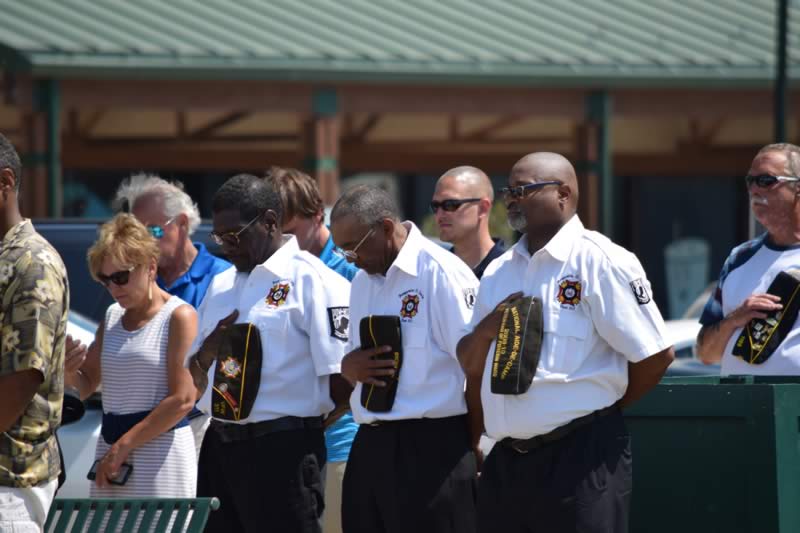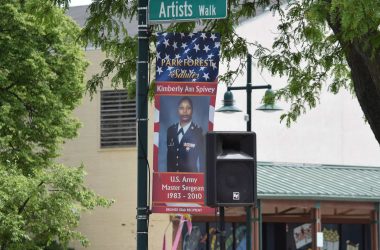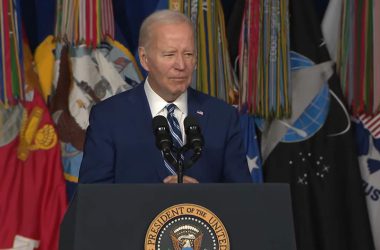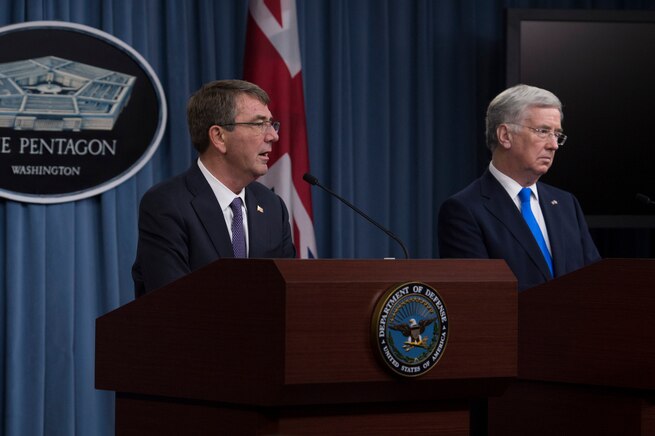U.S. Defense Secretary Ash Carter and British Defense Secretary Michael Fallon conduct a joint news conference at the Pentagon Dec. 11, 2015, after meeting to discuss matters of mutual interest. Carter hosted an enhanced honor cordon to welcome Fallon to the Pentagon. DoD photo by Air Force Senior Master Sgt. Adrian Cadiz
Washington, DC–(ENEWSPF)–December 11, 2015.
SECRETARY OF DEFENSE ASH CARTER: Well, good afternoon.
You may recall that when I became secretary of defense earlier this year Michael Fallon was the first defense secretary I welcomed to the Pentagon. So as we close the year, and it’s been an important one for the U.S.-U.K. combined operations and strategic planning, it’s fitting that we welcome Secretary Fallon back to the department today.
It’s good to see Michael so soon after my own visit to London in October. Thanks for being here Michael.
As our conversations today underscored, the United States has no better friend or ally than the United Kingdom. The multiple fronts where the United States and the United Kingdom have stood shoulder to shoulder over the past year, whether in deterring Russia, containing Ebola or confronting ISIL, make it perfectly clear this is indeed a special relationship.
Last week’s vote in the House of Commons to approve British participation in strikes on ISIL targets in Syria, provides further evidence of the enduring importance of our partnership.
The United Kingdom has been a strong member of the counter-ISIL coalition since the beginning of the campaign in September 2014, making significant contributions to air operations, including airstrikes against ISIL targets in Iraq and intelligence, surveillance and reconnaissance mission in both Iraq and Syria.
British soldiers have provided robust support for the coalition’s partners on the ground, advising, assisting, and building the capacity of local forces who are taking the fight to ISIL in both Iraq and Syria.
As we put increased pressure on ISIL’s nominal headquarters in Raqqah and as we intensify airstrikes against ISIL’s financial infrastructure across Syria, we appreciate and the world appreciates the U.K.’s contribution to this necessary and critical mission.
With strong allies like the United States and the United Kingdom, bringing to bear every instrument of national power against this barbaric foe, we will defeat ISIL and we will ensure that they stay defeated. Of course, our work together extends far beyond the Middle East. In Europe, we must continue writing a new playbook for deterrence and defense.
One that includes preparations to counter new challenges, like cyber and hybrid warfare. And we must continue to adjust, both our posture and our presence, in response to Russian aggression and to support our allies. Last month, the U.K. released its Strategic Defense and Security Review, a blueprint for British security priorities through 2020.
The SDSR establishes a strategic framework for the U.K.’s investments in a broad range of capabilities, including a reinvigorated focus on power projection, innovation, and deterrence.
The review recommends a series of decisions that will allow the U.K. to continue to play a leading role in strengthening the rules-based international order and confronting security challenges across the world.
At the Department of Defense, we wholeheartedly welcome the strategic depth and insight of this review and look forward to working with our British allies in making it a reality.
I also want to commend the United Kingdom for making sure these plans are properly resourced and particularly for deciding early to continue meeting the pledge NATO allies made in Wales to contribute two percent of GDP to defense. Meeting these targets matters greatly to the NATO alliance.
And so does our commitment to ensuring these sums are invested as strategically and deliberately as possible. With our two militaries’ renewed focus on improving the cooperation and interoperability of our forces, we will support our common defense while working to ensure our citizens get the most for every dollar and every pound spent. The United States values the U.K.’s government’s close, enduring and global defense partnership.
Today, and in the days to come, we will continue to strengthen our strategic collaboration and leverage our unique capabilities to engage the world as strong, principled allies.
Michael?
SECRETARY OF STATE FOR DEFENCE MICHAEL FALLON: Well, I’m delighted to be here again with Secretary Carter and I want to thank him for his typically generous welcome this afternoon. We’ve been reviewing the campaign strategy to degrade and to defeat ISIL-Daesh, and how to take forward our program of bilateral cooperation following our strategic defense and security review.
The decisive vote in our parliament last week to strike ISIS-Daesh at its heart in Syria was an important moment in this campaign. But that decision was to extend strikes, as Secretary Carter has said. We have already been playing the second biggest part against these terrorists in Iraq. We’re providing some 60 percent of the coalition’s entire tactical reconnaissance and up to a third of the precision strike capability.
The vote last week means that we can now treat this as one theater and use our expertise against ISIS-Daesh in its heartland. We have brought more planes to the region and we have more than doubled the number of missions that we fly by day and by night.
There will be plots against both our countries as we take the fight to ISIL-Daesh, just as there have been attacks like those in San Bernardino. But we must not allow the idea to take hold that standing up to this terrorism makes our homeland security any worse. That is a council of despair and simply wrong. So we must defend our values as much as our streets and always remember that these people don’t hate us because of what we do, but because of who we are.
The investments announced in our strategic defense review, along with our decision to increase defense spending every year, will deliver bigger, stronger defense so that the United Kingdom can continue to play a leading role in global defense and security. The United States remains our closest strategic partner and we will work together to promote global stability, to protect our shared interests and to deliver prosperity for our people.
Major defense projects, such as F-35, demonstrate our long-term commitment to the U.K.-U.S. defense relationship. Our review enhances that with new priorities, not least the P-8 maritime patrol aircraft, and the doubling of our drone fleet. I have agreed with Secretary Carter today that we will strengthen the way our bilateral relationship is governed and directed.
On equipment, we now want to take a more structured, program-based approach so that our governments and defense industries can deliver these capabilities against some demanding timelines and can build on our existing strong industrial collaboration. The strength and the depth of our political resolve, our deeply aligned national security and defense strategies and the extraordinary skill and courage of our armed forces add up to a relationship unlike any other.
With that, I’m happy to take some questions.
Q: Hi, thanks. Lolita Baldor with AP.
Mr. Secretary, considering some of the criticism that came up at the hearing the other day and the fact that — that President Obama will be here in the Pentagon to discuss the fight against ISIS on Monday, should the American people take this as a suggestion that there’s a need to either invigorate or change, if not the strategy, but the implementation of the strategy against ISIS in Iraq and Syria or at least make it more aggressive?
And Mr. Secretary — Secretary Fallon, earlier today, Russian President Vladimir Putin said again that he would like closer coordination with the west in Syria. What do you think of that? Do you think there should be some greater coordination with Russia as more of these strikes continue? And if you wanted to address that too.
SEC. CARTER: Well, with the first — with respect to the first part, we are taking a number of steps, and I described a number of them earlier this week. And we intend to take more, to strengthen the execution of our strategy and hasten the defeat of ISIL. And the president will be here in the Pentagon on Monday, and he’ll hear not only from us here in the Defense Department, his senior commanders in the field, about the military dimensions of the campaign to defeat ISIL, but also this is a National Security Council meeting. So the secretary of state and representatives of the intelligence community, law enforcement, homeland security, all of the parts that we know are necessary to protect our people, and strike at our enemies, will be involved. And I expect him both to hear what we’re doing, and continue to say what he’s told me and General Dunford, certainly for the military campaign, which is that he wants us to continue to come to him with proposals for ways that we can strengthen the campaign consistent with our overall strategic approach.
SEC. FALLON: Thank you. The United States has been leading the coalition since last year against ISIL/Daesh. And — and we are now fully part of that by our — extending our operations to Syria as well as Iraq.
Secretary Carter has asked other countries, including the United Kingdom, what more they can contribute to the campaign as we move to this new focus on degrading the infrastructure that supports ISIL/Daesh. And we will be responding to his letter in due course.
So far as Russian involvement is concerned, we have said from the beginning, if Russia wants to help in Syria where it has influence, it ought to stop propping up the Assad regime, help us bring this civil war to an end, stop bombing the opposition groups that have been opposed to Assad and start to play a more constructive role in the process of moving Syria to a more pluralist future.
Q: Hi. Question for Mr. Fallon. Could you give us more detail about the — the British air strikes in Syria so far? And also, are we gonna see a ramping up of the intensity in the coming weeks?
And also, on the Libya question, Secretary Carter, do you think it’s a realistic prospect that ultimately the ISIS leadership might fall back to Libya?
SEC. FALLON: Well, let me start with the first, and then hand it over to Secretary Carter on Libya.
So far, as strikes are concerned, we have doubled our strike force in Cypress, moving aircraft there immediately after the vote last Wednesday. We flew extra aircraft in on Thursday. Those aircraft were in action immediately on Friday evening. And we have begun a series of strikes, successful strikes, against infrastructure targets, mainly in the eastern — in the oil fields, the (inaudible) field in eastern Syria. And we — you — you should expect to see more of that, precision strikes, against key infrastructure. The oil well heads, the ammunition depos, the logistics, the command and control, the supply routes between Syria and Iraq, as we intensify the focus on degrading the support that ISIL derives from some of these revenue streams.
SEC. CARTER: With respect to Libya — as ISIL is being destroyed in its parent tumor of Syria and Iraq, we’re gonna not let it — not gonna let it fall back anywhere. Libya or anywhere else where it is metastasizing. We’re going to combat ISIL everywhere that it appears.
It must be destroyed in its birth place of the — of — of Syria and Iraq. But it is metastasizing to other parts of the world. We’ll combat it everywhere. And of course, that includes in our own homelands. And so it won’t have any place to fall back on.
Q: Hi. Thank you. Two quick follow-ups, actually, and then one question.
Secretary Carter, you said that the president has continued to tell you to come to him with proposals for fighting ISIS in Iraq and Syria. But on the Hill this week, you essentially said if you had more options or ideas, you would offer them. So what does that mean? Does that mean that there’s sort of a stalemate — you’re at — you’re at a logjam here?
SEC. CARTER: No. It means that we constantly develop through new intelligence, very importantly, new techniques and tactics for attacking ISIL. I’ll give you a few recent examples.
The attacks on the oil and other revenue streams of ISIL. Our ability to do that in a way that subtracts from ISIL’s ability to earn revenues, while not affecting the life of ordinary people who are simply victims of this evil movement, that kind of intelligence was what allowed us to take these strikes. So we constantly develop new opportunities.
We also develop new tools. I described earlier this week something we’re calling the expeditionary targeting force. That’s a new way of being able to get in and strike leadership, key targets, gather intelligence. So — and I expect in a week and two weeks and six weeks and so forth for us to be doing more and building more capability, and having more and more impact every week. That’s the whole idea.
That’s what President Obama has asked us to do, and that’s what we’ve been able to do and will continue to do.
Q: Mr. Fallon, one quick follow-up on Vladimir Putin. He also said today that the Russians are now supporting the Free Syrian Army. And the Kremlin sort of walked it back a little bit. But are you seeing any indication that they are providing any kind of air cover, as you said? He also mentioned ammunition and weapons.
And then, Secretary Carter, actually my other question for you was about the special forces that are going into Syria. John Kirby over at the State Department said this week that there are actually a small number in Syria already.
I know you don’t want to get into operational security (inaudible) and to numbers or where they are, but can you tell us now that there’s an acknowledgement that they have gone in, are they basing there right now? Are they moving in and out? And what specifically are they — I mean, these are American troops operating in a sovereign nation at this point. So what can you tell the American people about what they are doing there?
(CROSSTALK)
SEC. CARTER: Well, I’m not going to speak specifically about the actions of special forces, especially while they’re ongoing. By the way, Minister Fallon and the United Kingdom has what I think is a very admirable policy of not commenting on the activities of special forces.
So we obviously have them. They are extremely capable. We have acknowledged, as indicated, that they operate in Syria. I indicated earlier this week we’re prepared to do more. But the specific movements and operations, we’re — we’re not going to be able to describe.
SEC. FALLON: So far as the Russian move is concerned, I mean they began by bombing the Free Syrian Army. If they’re now — now claiming to be supporting the Free Syrian Army, I mean, that is welcome. What they’ve got to do is stop propping up the Assad regime; stop bombing opposition groups who are opposed to the Assad regime; stop dropping unguided munitions on innocent villages and groups who’ve been fighting Assad; and get behind the political process that is now underway of leading that country to a more — a more pluralist government and a future without Assad.
(CROSSTALK)
Q: Thank you.
Secretary Fallon, in your expanded campaign against ISIS, under what scenarios do you anticipate sending ground forces to Iraq and Syria? And then in the last week, the U.S. has announced an even more expanded role to seek out ISIS in countries around North Africa, in the Middle East. Would you consider sending forces to assist in those counterterrorism hubs?
And then for Secretary Carter, in the incremental additions that have been made to the U.S. presence in Iraq, at this point if there are additional troops that would be announced, would those decisions be coming out of the White House? Or does the Pentagon at this point have I guess the authority to continue to add troops if you deem it necessary?
SEC. FALLON: Well, on the first, we’re not proposing to send combat troops back into Iraq or — or into Syria. Prime Minister Abadi made it very clear to me when I was last in Baghdad that they do not want to see British troops on the ground there. And with great respect, they don’t want to see American troops there. They realize that security has to be achieved in areas that have been liberated from ISIL-Daesh by home-grown forces that can enjoy the support and confidence of the — of the Sunni areas.
And that can’t be done by western boots on the ground. So far as other countries are concerned, in countries in Libya, yes, we’ve been working for a political settlement there. And if we can achieve a political settlement, which, as you know, is being negotiated at the moment, and there’s an international mission to help provide training and support for it, of course, we would be part of that. We’re already providing training and assistance to the government of Nigeria in its own campaign against the ISIL-Daesh franchise Boko Haram in northeast Nigeria.
SEC. CARTER: With respect to U.S. troops in Iraq, let me just remind you that we have more than 3,500 in Iraq, right now, doing a spectacular job by the way. They’ll shortly be, most of them, celebrating their holidays there and not here. And we all ought to keep that in our mind and take a moment to remember them over the holidays.
Obviously, the president is the commander-in-chief. So everyone deployed is subject to his approval. I write their deployment orders. I think very carefully about every single one. With respect to overall numbers, the president has indicated and shown a willingness to increase that number, most recently, as we’ve indicated in the last few weeks, as we develop opportunities to make good use of them.
Now we obviously don’t — we try to deploy as few people as we can simply by — in recognition of the fact that they’re away from their families. But we have to do what we have to do to protect our country and to defeat ISIL and troops know that. And particularly in this season we bless them for taking it on.
STAFF: Thank you everybody.
SEC. CARTER: Thank you Michael.
SEC. FALLON: Thank you very much.
Source: www.defense.gov









